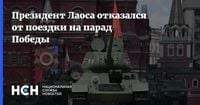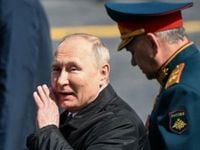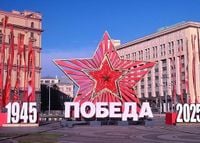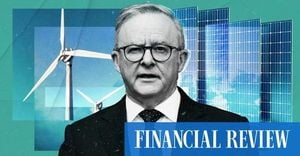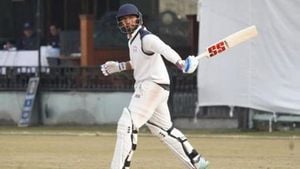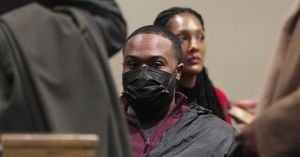Moscow is gearing up for its annual military parade on May 9, a significant event commemorating the victory in World War II. However, the participation of two notable leaders has been unexpectedly canceled. The President of Azerbaijan, Ilham Aliyev, and the leader of the Lao People's Democratic Republic, Thongloun Sisoulith, will not attend the celebrations. This announcement was made by Yuri Ushakov, an aide to President Vladimir Putin, on May 7.
Initially, Aliyev was confirmed to attend the Victory Parade, with arrangements made between Moscow and Baku as early as March. Yet, Ushakov stated, "We have received a message that Aliyev will not fly (to Moscow for the Victory Parade - ed.), unfortunately." The Azerbaijani government explained that Aliyev's absence is due to his participation in internal events honoring his late father, former President Heydar Aliyev.
As for Sisoulith, Ushakov indicated that he would also be absent due to health reasons, specifically citing that the Lao leader had contracted coronavirus. In his place, Foreign Minister Salemxay Kommasith will represent Laos at the parade.
The parade is expected to host leaders from 29 countries, marking a significant diplomatic event. Among those confirmed to attend are Venezuelan President Nicolas Maduro, Chinese President Xi Jinping, and General Secretary of the Central Committee of the Communist Party of Vietnam, To Lam. The event will also see participation from veterans from several countries, including Israel and the United States, highlighting its international significance.
Ushakov elaborated that Russian President Vladimir Putin plans to conduct over 15 bilateral meetings with foreign leaders during the period from May 7 to May 10. The presence of various heads of state underlines the importance of the parade, which serves as a platform for showcasing Russia's military strength and honoring the sacrifices made during the war.
Despite the cancellations, the preparations for the parade are proceeding as planned. The event is a focal point for Russia's national pride and a reminder of the sacrifices made during World War II. It is also a time for reflection on the historical events that shaped the nation.
While the absence of Aliyev and Sisoulith is notable, the participation of other leaders emphasizes the parade's role in fostering international relations. The event is not just a display of military might; it also serves as a diplomatic gathering where leaders can discuss pressing global issues.
As the date approaches, the atmosphere in Moscow is one of anticipation. The military parade is a long-standing tradition, and this year, it holds even greater significance as it marks the 80th anniversary of the victory in the Great Patriotic War. The city's streets will be lined with spectators, eager to witness the display of military prowess.
In addition to the military displays, the parade will feature various cultural performances, showcasing the rich heritage of Russia. This blend of military and cultural elements is designed to evoke a sense of unity and pride among the Russian people.
While the cancellations have cast a shadow over the event, the Russian government remains committed to ensuring the parade proceeds smoothly. The involvement of foreign dignitaries and veterans underscores the event's importance not only to Russia but to the international community as well.
As the world watches, the May 9 parade in Moscow will serve as a powerful reminder of the past and a celebration of resilience and unity in the face of adversity.
